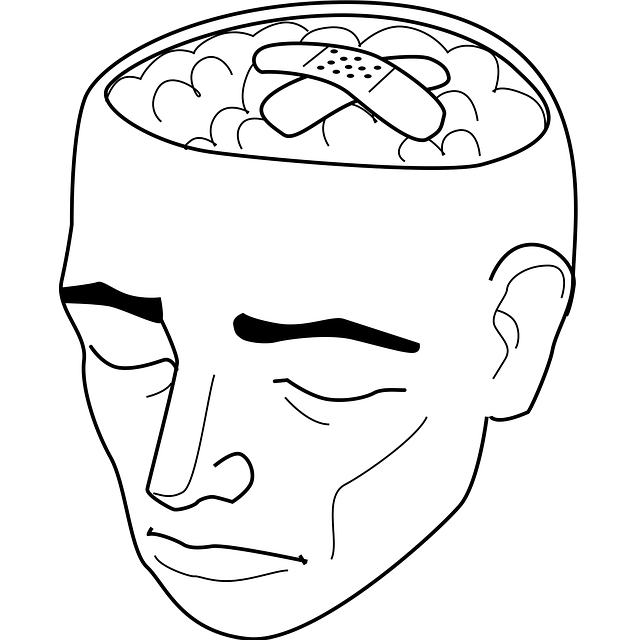Boulder Trauma Therapy is a specialized crisis intervention approach that equips professionals with essential trauma support skills, promoting safe mental wellness processing. Through evidence-based practices, self-care routines, and ongoing training, effective CIT programs like Boulder Trauma Therapy enhance community support, prevent provider burnout, and significantly improve risk assessment and intervention outcomes, ultimately fostering resilience and positive mental health journeys for both providers and clients.
“In today’s fast-paced world, effective crisis intervention is more crucial than ever. This article explores the transformative power of Boulder Trauma Therapy and its integral role in training Crisis Intervention Teams (CITs). We delve into the key components that make CIT programs successful, highlighting their profound benefits for both communities and individuals. Furthermore, we provide practical strategies for implementation and continuous improvement, emphasizing the enduring impact of well-structured CIT training.”
- Understanding Boulder Trauma Therapy and Its Role in Crisis Intervention
- Key Components of Effective Crisis Intervention Team Training Programs
- Benefits and Impact on Communities and Individuals
- Implementation and Continuous Improvement Strategies for CIT Training
Understanding Boulder Trauma Therapy and Its Role in Crisis Intervention

Boulder Trauma Therapy is a specialized approach that plays a pivotal role in crisis intervention training programs. This therapy focuses on helping individuals process and overcome traumatic experiences, ensuring they receive the necessary support to manage crises effectively. By understanding the profound impact of trauma, this therapeutic method empowers people to develop coping mechanisms and enhance their mental wellness.
Incorporating Boulder Trauma Therapy into crisis intervention training provides valuable trauma support services. It equips participants with skills to recognize and respond to traumatic reactions, fostering an environment where individuals can safely process their experiences. This approach also encourages mental wellness journaling exercises as a means of self-reflection and healing. Furthermore, the therapy boosts confidence in handling challenging situations, enabling crisis intervention teams to offer comprehensive care tailored to each individual’s needs.
Key Components of Effective Crisis Intervention Team Training Programs

Effective crisis intervention team training programs are multifaceted and inclusive, focusing on several key components to ensure preparedness and resilience in handling high-stress situations. One of the cornerstones is education and de-stigmatization around mental health issues, fostering an environment where help-seeking is encouraged. This includes training team members in recognizing signs of distress and understanding the nuances of different mental health conditions, particularly using evidence-based practices like those offered by Boulder Trauma Therapy.
Additionally, these programs prioritize self-care routine development for better mental health, emphasizing the importance of mental wellness coaching programs. By integrating mind over matter principles, participants learn coping strategies to manage their own stress and maintain emotional balance during crises. This holistic approach ensures that crisis intervention teams are equipped not only to assist others but also to navigate their own mental wellness journeys effectively.
Benefits and Impact on Communities and Individuals

Crisis intervention team training programs have a profound impact on communities and individuals alike. By equipping mental health professionals with enhanced skills in trauma therapy, such initiatives as Boulder Trauma Therapy promote resilience and coping mechanisms. This not only benefits those in immediate crisis but also contributes to burnout prevention strategies for healthcare providers, fostering a healthier workforce.
Moreover, these training programs foster the development of coping skills, enabling both professionals and those they support to navigate challenging situations more effectively. Additionally, risk assessment for mental health professionals becomes more accurate and proactive, ensuring that interventions are timely and appropriate. This holistic approach ultimately strengthens community support systems and enhances individual well-being.
Implementation and Continuous Improvement Strategies for CIT Training

Implementing effective crisis intervention team (CIT) training programs requires a strategic approach that combines initial intensive training with ongoing support and continuous improvement. The first step involves selecting a comprehensive curriculum designed to equip teams with the necessary skills in trauma-informed care, de-escalation techniques, and mental health interventions. Programs like Boulder Trauma Therapy offer evidence-based models that can be adapted to suit diverse community needs.
To ensure long-term success, regular refresher courses, workshops, and peer support networks should be established. Mental wellness coaching programs can play a pivotal role here by fostering open communication, promoting positive thinking, and integrating mindfulness meditation practices. This ongoing development not only enhances the team’s capabilities but also encourages a culture of resilience and continuous learning, ultimately leading to improved crisis response outcomes.
Boulder Trauma Therapy offers a specialized approach to crisis intervention, emphasizing the interconnectedness of community support. Effective crisis intervention team (CIT) training programs, enriched by this therapeutic model, empower individuals to respond with empathy and efficacy during traumatic events. By focusing on active listening, de-escalation techniques, and cultural sensitivity, CIT training fosters safer, more resilient communities. Continuous improvement strategies, adapted from best practices in Boulder Trauma Therapy, ensure that interventions remain effective and responsive to evolving needs, ultimately enhancing the well-being of both individuals and communities.














